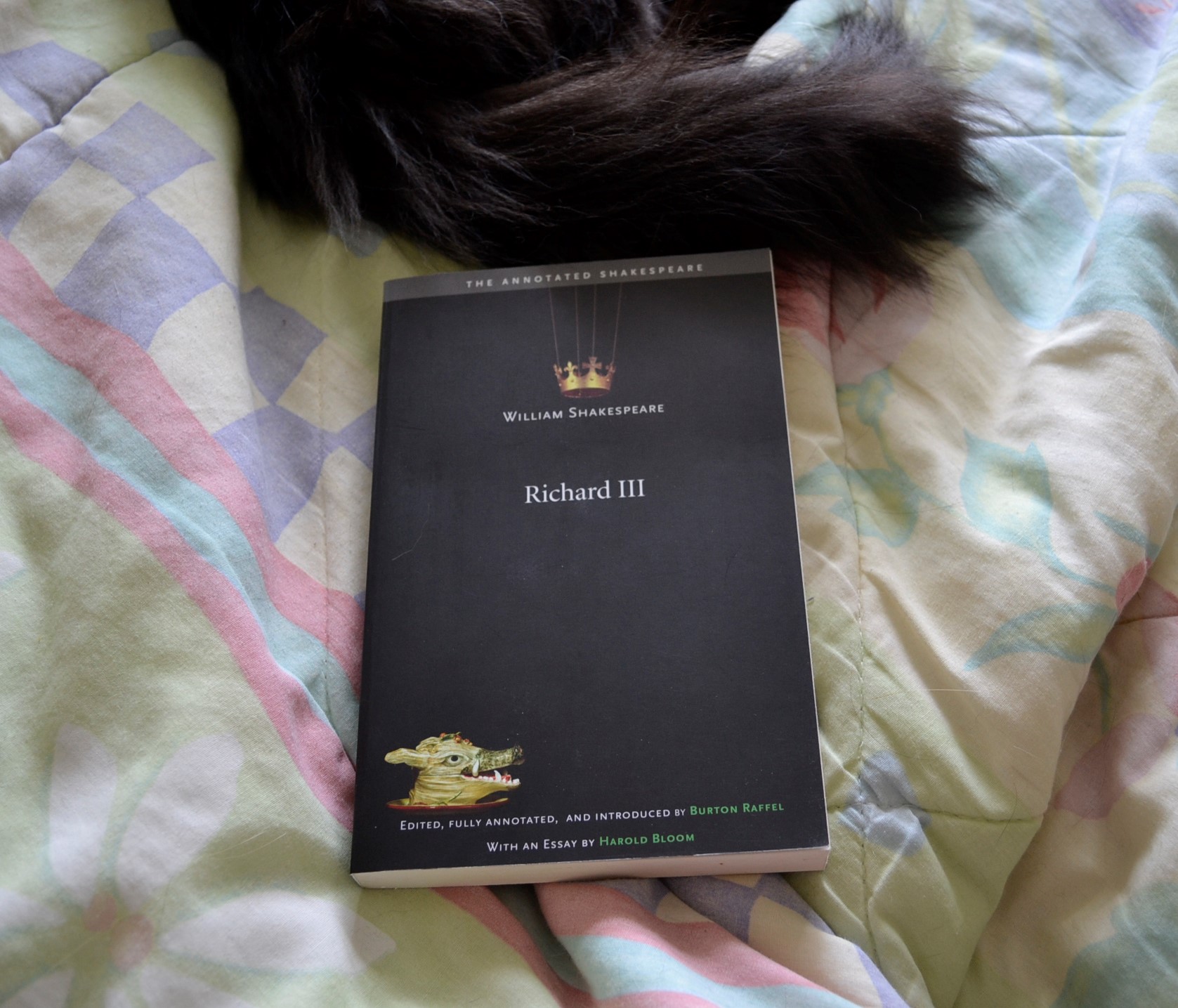The Return to the Theatre
As tourists flood the town again, I’m excited that the theatre season is in full bloom once more after two years of absence. But, however excited I am, it has been two years and it’s been hard to get used to the crowds again and used to life without the guidelines and protocols we relied on. And there are many people who can’t wait to get right back to where they left off two years ago.
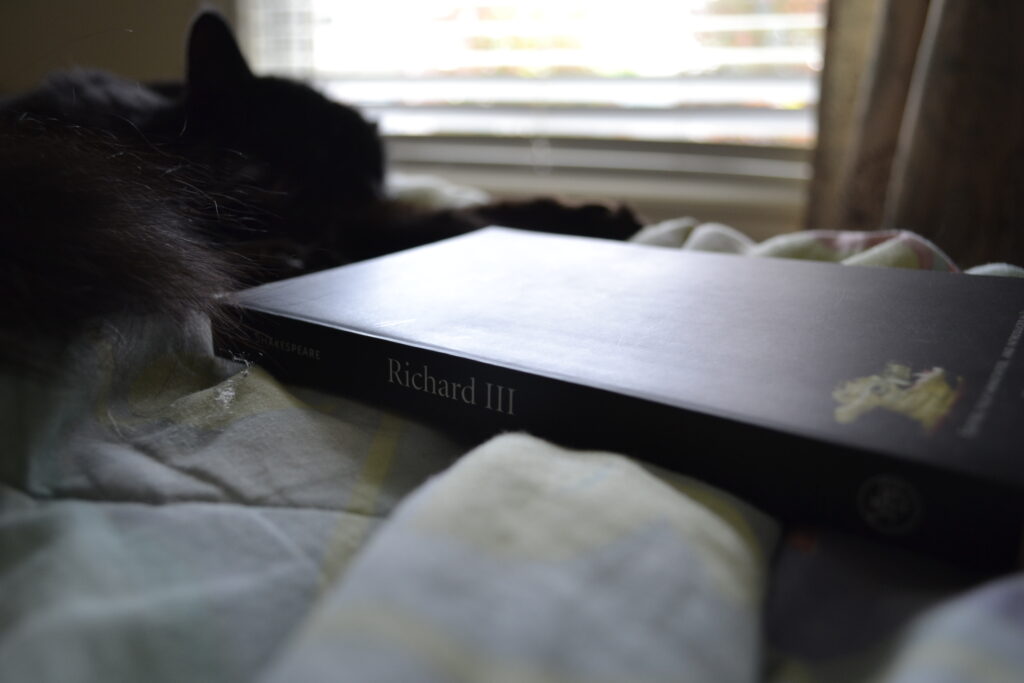
For me, it’s different. We were lucky. We still have our small business and we still have our health. But the world has changed in ways that are very hard to ignore — highlighting the problems we should have been aware of all along. It feels like what’s being asked of me is that I go backward in time to before 2020 and the subsequent aftermath ever happened.
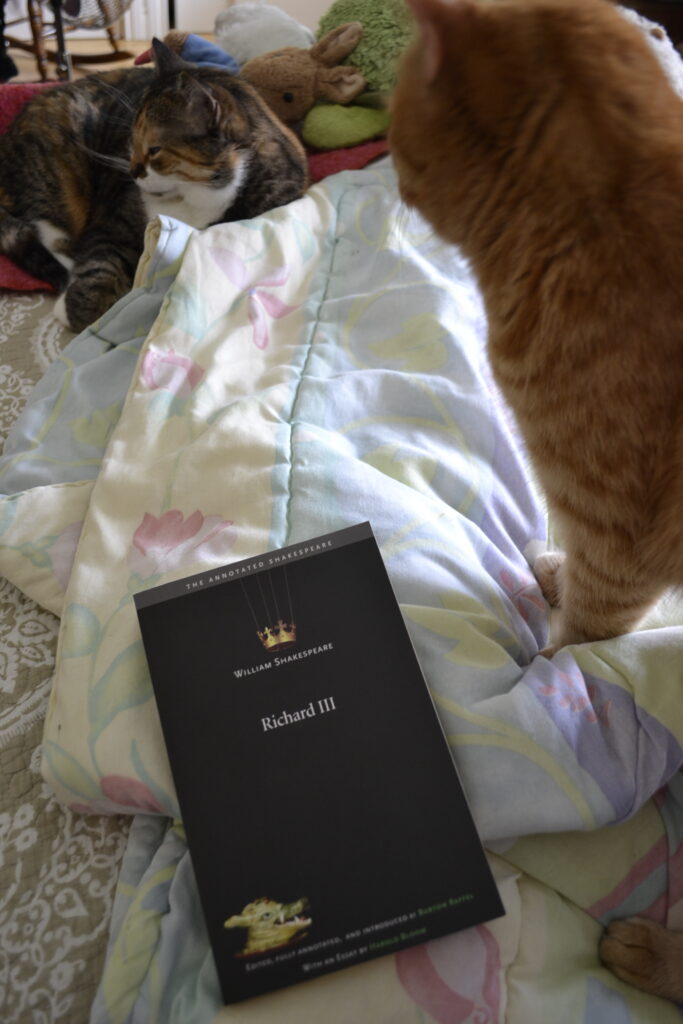
I can’t do that, and I’m not the only one — even if it feels like it sometimes. It’s okay to still be wearing a mask and it’s okay to be excited to go to the theatre and nervous about it at the same time. While I hold my lovely spouse’s hand as the house lights go down, I often think about how I’m grateful for so many things, including the ability to be in the theatre, watching a play. Then I try to let all of my worries go and just focus on the stage.
A Tragedy in Layers
Richard III is both referred to as one of Shakespeare’s tragedies and one of Shakespeare’s histories. It centres around the disastrous reign of Richard III — including his rise to power as well as his fall. (For those unfamiliar with the story, his road to the crown involves a lot of manipulation, betrayal, and murder.) Not only does the play explore the costs of hubris, but there are themes of familial duty, motherhood, the far-reaching impact of crime and tragedy, and charisma and how far it can carry malignant personalities. The layers are endless! There are so many perspectives to examine this play from, and each one is rich in depth.
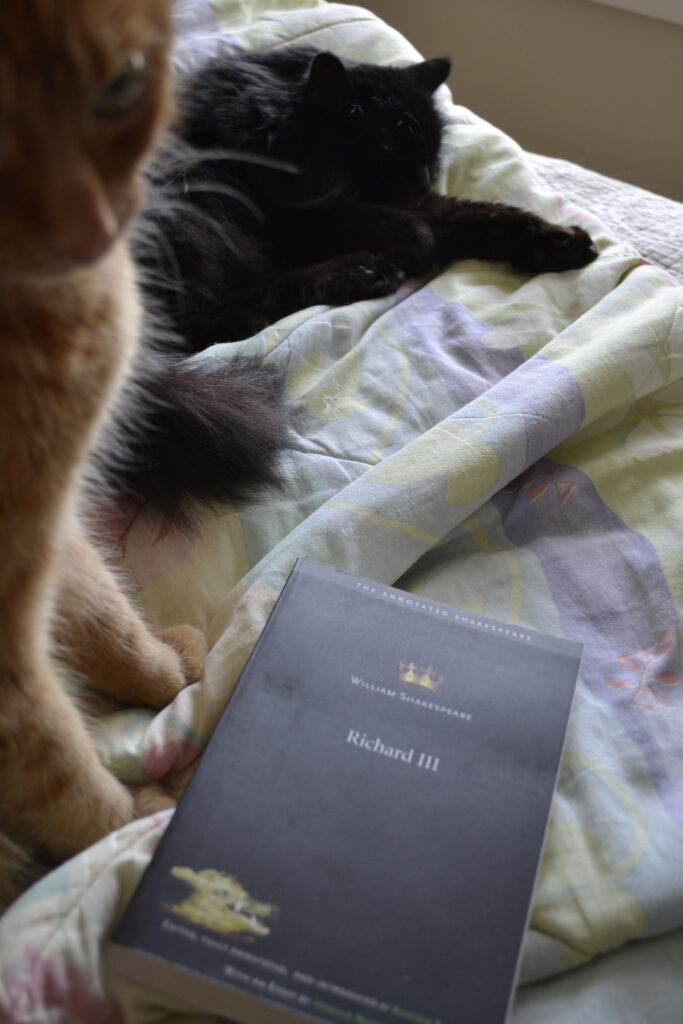
That’s the beauty of Shakespeare’s work. Additionally, his stories influenced so much modern literature that reading one play can open up a world of references and meanings which will impact your subsequent studies and interpretations of whatever literary specialty you have. Shakespeare is a writer that one cannot escape in terms of the threads of his works appearing again and again and again in pop culture, mass media, and every other written (and most visual) media. There are few other authors that could even dream of having that kind of reach and impact.
It’s in the Direction
The thing about reading plays and dramatic pieces is that you have to reckon with different directors bringing different interpretations and artistic directions to the table. Sometimes that can be great, and sometimes it can be a bit, well, disappointing for a reader.
I have to say that my favourite interpretation of Shakespeare’s Richard III is one that focusses on his anger, pride, and disappointment. He’s manipulative, and has a wit that is sharp and venomous. He is out for destruction in order to attempt to destroy what he views as the source of his pain and alienation. He wants power because his physical being is one that he feels renders him powerless.
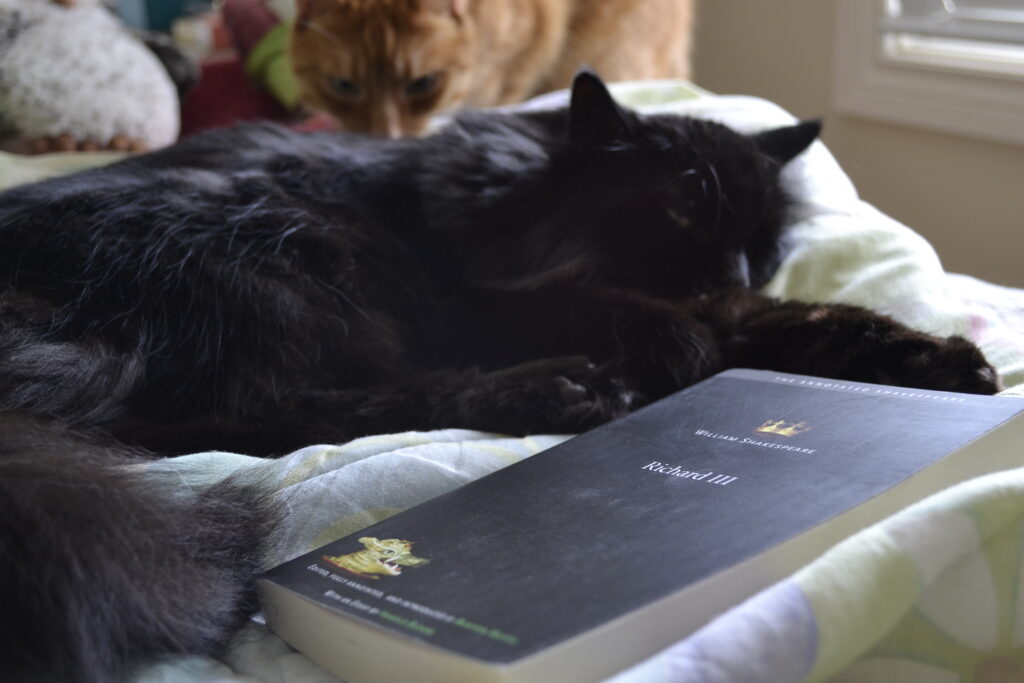
I have seen interpretations in which Richard III is portrayed as charismatic to the point of unevenly highlighting the more comedic elements of the play. Yes, the contrast between who other characters believe Richard to be versus what he actually is inside contains an element of humour, but giving too much weight to it can easily upend the real power of the play.
But interpretation is subjective. It’s a matter of opinion. It’s important to read carefully and form your own independent of a specific direction or production. That’s why I always recommend reading a play before seeing it acted on stage.
History?
One of the most important things to remember about Shakespeare’s Richard III, is that it is a play, not a history book. Richard III is a monarch that remains a controversial figure even today. The murder of his nephews remains unproven. In fact, most of the murders he orchestrated in the course of the play weren’t perpetrated by him, historically speaking. Shakespeare was influenced by the Tudor dynasty and their own interpretation of the Plantagenet house as villainous. The Tudors wanted to be the heroes — and so Richard III was written as the villain.
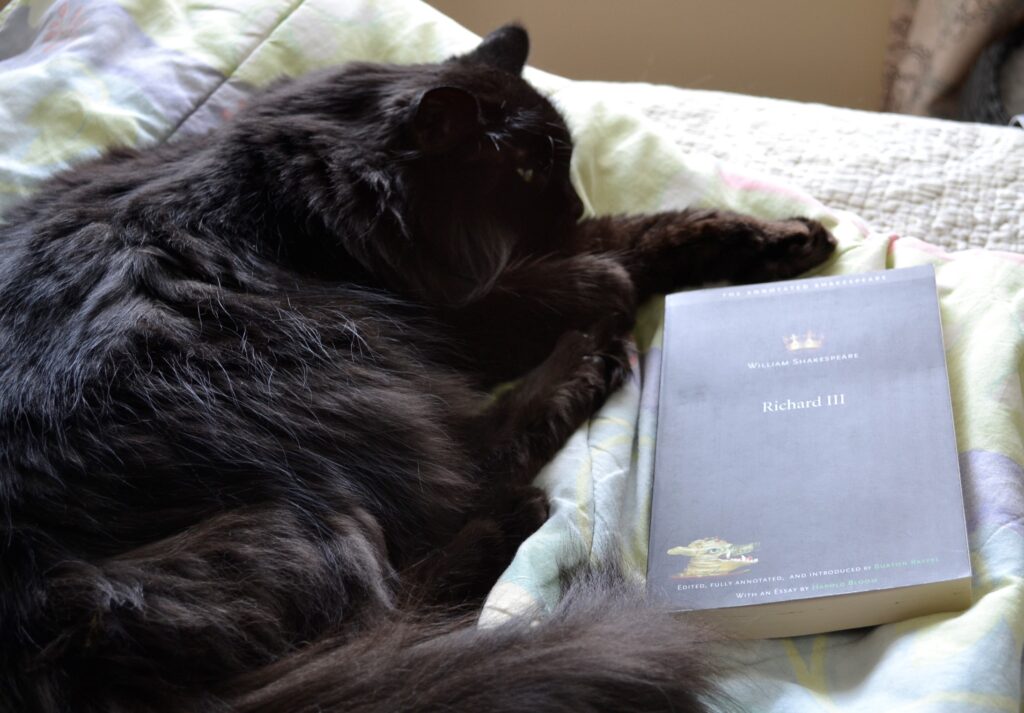
This a great example of why it’s important to look at historical context when studying literature. Because knowing why Shakespeare wrote these historical people as he chose to write them is just as vital as examining themes, plot, and conceptual content. Richard III is not meant to be history; it’s meant to be thought-provoking entertainment that is indeed tailored to the audience that Shakespeare wrote for.
If you’re interested in the facts surrounding Richard III and his reign, it’s always best to consult non-fiction sources, books, and articles. It would be unwise to rely on literature alone.
Rush Tickets
We’ve enjoyed the first few plays of the seasons so much that we’re discussing staking out some rush tickets before the next performance we have scheduled. There’s something extra magical about just deciding to spend the evening at the theatre on the spur of the moment.
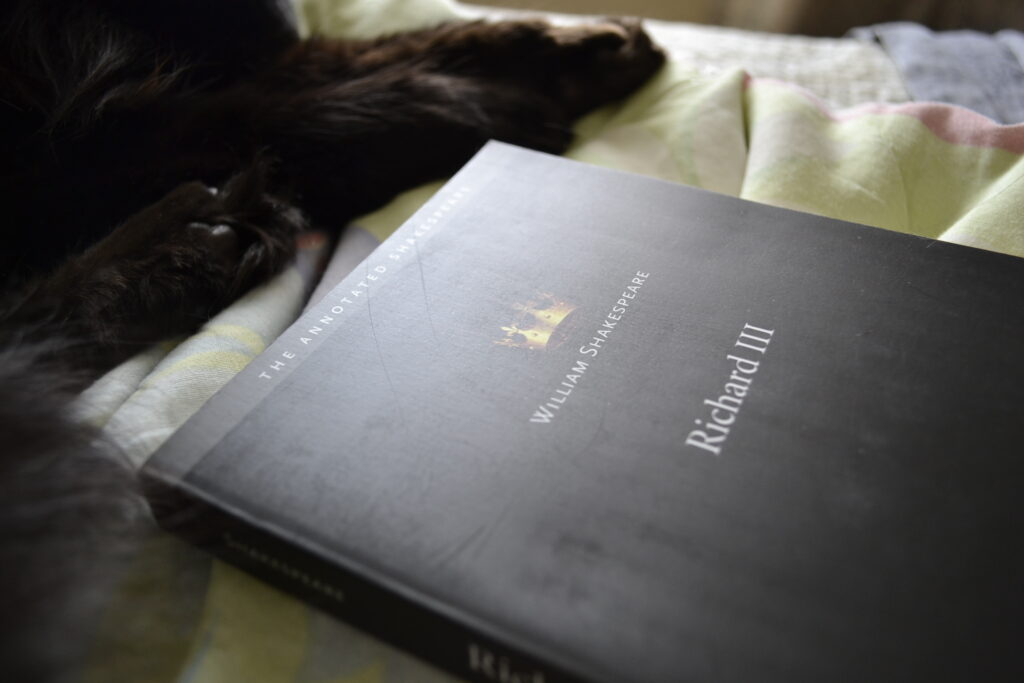
The cats are less enthused about this. Though being provided with ample food, they absolutely loathe any and all disruptions to their perfect kitty schedule — no matter how minor. If we ever have to get a pet-sitter, I dread the novel of instructions I’ll have to leave them in order to care for our five pampered princesses.
